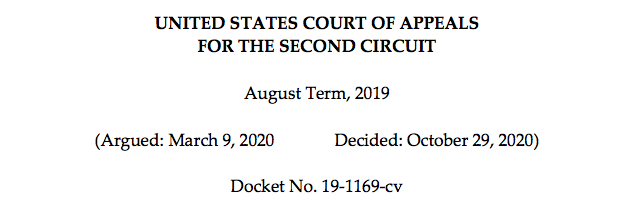- Free Consultation: (631) 352-0050 Tap Here to Call Us
Does the First Amendment Protect Students’ Work Assignments as Speech?

The First Amendment protects, among other freedoms, the freedom of speech. The First Amendment applies only to prohibit government conduct, not private conduct. Governments take many forms, including towns, counties, and public school districts. So, the First Amendment applies to public schools and universities.
But, in certain contexts, such as schools, the First Amendment does not apply as broadly as it does to general citizen First Amendment speech. In some areas, such as public workplaces and public schools, the First Amendment recognizes that the government has a strong and important interest in regulating speech. So while students and government workers do not completely shed their First Amendment rights in schools and workplaces, different rules apply to determine whether the First Amendment applies.
Today’s Long Island civil rights blog discusses a First Amendment claim in the context of a public college.
In Collins v. Charter Oak State College, a student sued his college and a professor, because the professor removed a post he made from an online college message board. For one class assignment, the professor asked students to watch a video, then answer questions about the video and post them to the class’s virtual classroom message board.
Collins posted to the board, but instead of answering the questions, he critiqued the video and the assignment. The professor told Collins that she did not mind some humor, but she could not tolerate critiques which could be offensive to other students. The professor removed the blog. The student protested, accusing the professor of censorship, then promising that she would be “educated on the civil rights of . . . students.”
Collins sued, but the trial court dismissed his case, holding that his First Amendment rights were not violated. Collins appealed.
On appeal, the Second Circuit noted that the Supreme Court has identified several tests to determine whether a student’s speech is protected by the First Amendment. In Collins’s case, one of two of these tests could potentially apply.
The first test is known as the Hazelwood standard. Under the Hazelwood test, Courts look at whether the student’s speech related to school sponsored expressive activity. School sponsored activity exists when students and parents would reasonably believe the speech bears the imprimatur of the school. If the speech is school sponsored, then the educators may regulate the speech if the regulation is reasonably related to a legitimate pedagogical concern.
Under the Tinker test, Courts look at whether the speech was a student’s personal expression that happens to occur on school premises. Then, educators may only regulate speech which disrupts classwork and discipline.
Collins argued that his speech should be evaluated under Tinker, but the trial court and appellate court disagreed. The Court held that his speech had the “hallmarks” of school sponsorship, including being made as part of a school assignment, it was made under the supervision of a faculty member, and the message board was available because the school provided it as part of the class and was made available only to students, instructors, and administrators. Thus, Hazelwood applied.
Next, the Appellate Court ruled that the professor’s deletion of the post related to pedagogical concerns. On this point, the Court looked at Collins’s own admission that his post critiqued the assignment and materials.
The Court summarized its decision by highlighting its view that the case was about nothing more than a student who, instead of responding to an assignment as instructed, complained about the materials usefulness for teaching. The Court found no Constitutional violation existed when the professor removed such material from the message board.
First Amendment issues are rarely clear cut, but because of the latitude afforded to public schools and public workplaces to regulate students and workers, First Amendment issues can be even blurrier in such circumstances. Famighetti & Weinick PLLC are experienced in handling First Amendment matters and can assist in evaluating First Amendment issues.
To speak to a Long Island First Amendment lawyer about free speech or other First Amendment freedoms, contact us at 631-352-0050.
When is a student’s speech protected by the First Amendment?









